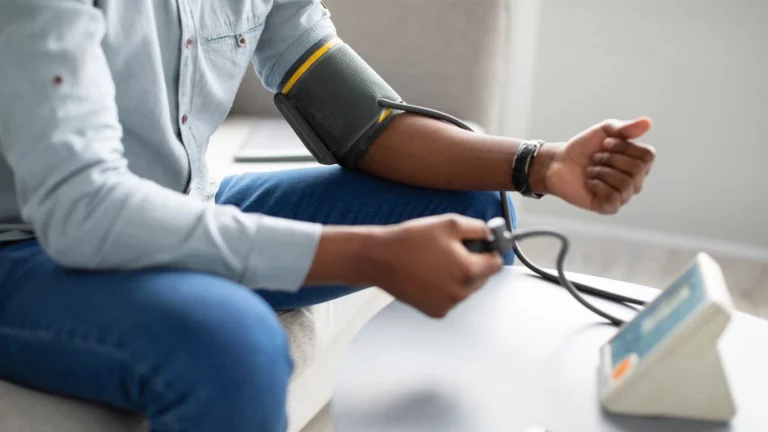Can GERD Cause Lung Issues? Understanding the Shocking Link
If you’ve ever felt like your chest was tightening or your breath was catching during a GERD flare-up, you’re not imagining things. I remember one night, after a heavy meal, waking up gasping like someone had sat on my chest. Turns out, my acid reflux wasn’t just about heartburn—it was messing with my lungs. While it might sound surprising, GERD can affect much more than your digestive system. Breathing issues, wheezing, even chronic coughs can all have ties to reflux. Let’s break it down.
Why Shortness of Breath Can Be a GERD Symptom

Shortness of breath doesn’t always scream “digestive issue,” but it’s a common hidden symptom of GERD. The way it works is oddly mechanical—stomach acid creeping into the esophagus can irritate the airways and cause spasms. Sometimes, it can even trigger a condition that mimics asthma. And I know it firsthand—those shallow, panicked breaths I used to get were actually reflux related.
How Reflux Irritates the Airways
- Microaspiration: Tiny droplets of acid sneak into the lungs.
- Vagal nerve reflex: Acid stimulates a nerve that tightens the airways.
- Esophageal-bronchial link: Chronic acid exposure sensitizes the lower airways.
According to the Mayo Clinic, GERD may contribute to breathing problems, especially if left untreated. It’s not always as dramatic as gasping, either. Sometimes it’s a subtle pressure in the chest or a need to yawn excessively to “catch a full breath.”
Lung Involvement: Acid Reflux’s Unexpected Target

The lungs aren’t built to handle acid. So when stomach acid slips past the upper esophageal sphincter (which acts like a gate), it can end up in the airway and lungs. This is especially problematic for people with laryngopharyngeal reflux (LPR), a form of reflux that reaches higher into the throat and even into the nasal and lung areas.
What Happens When Acid Reaches the Lungs?
- Inflammation: Acid inflames lung tissue, leading to chronic coughing and bronchial irritation.
- Increased mucus: The body reacts to acid by producing excess mucus, leading to phlegmy coughs.
- Infections: Recurrent exposure may increase the risk of pneumonia or bronchitis.
For some, especially older adults or those with weakened esophageal sphincters, this becomes a cycle—reflux leads to lung issues, which then worsen the GERD symptoms. A good starting point is identifying the reflux type you have. Here’s a helpful guide on effective GERD diagnosis methods you should know about.
Chronic lung exposure to stomach acid may even cause scarring over time, contributing to reduced lung capacity and worsened asthma symptoms. If you’re managing both GERD and a respiratory condition, this interaction could be silently undermining your treatment plan.
Nighttime Symptoms You Shouldn’t Ignore

Nighttime is when GERD and lung problems get sneaky. Lying down makes it easier for acid to escape into the esophagus and potentially into the lungs. I used to prop myself up with three pillows just to avoid that choking feeling at 2 AM.
Common Nighttime GERD Lung Symptoms
- Coughing fits in the middle of the night
- Hoarseness or sore throat in the morning
- Sudden gasping or choking while asleep
- Waking up with a burning sensation in the chest
Nighttime reflux can cause sleep disturbances and poor sleep quality. And unfortunately, poor sleep can trigger more acid production. It’s a vicious cycle that’s hard to break without strategic lifestyle changes and treatment.
Sleep apnea is another concern. Research has shown that GERD may exacerbate obstructive sleep apnea, where the airway repeatedly closes during sleep. This not only affects breathing but also significantly impacts heart health and energy levels.
When You Should Talk to a Doctor

If your reflux is triggering respiratory symptoms or you feel like you’re constantly short of breath—even without typical heartburn—you need a professional evaluation. GERD-related lung issues can sometimes be mistaken for asthma or chronic bronchitis. A proper diagnosis can prevent years of ineffective treatment.
Red Flags That Warrant Medical Advice
- Chronic cough that doesn’t respond to typical medications
- Recurrent pneumonia or lung infections
- Persistent hoarseness or voice changes
- Difficulty breathing after eating or lying down
For a more targeted approach to relief, explore these highly rated GERD treatment options.
And if you’re wondering whether this might all be part of a larger reflux pattern, take a look at the GERD Overview: Managing Acid Reflux for a Healthier Life to get the big picture of how GERD can show up in your body.
Chronic Lung Damage from Repeated Acid Exposure

It’s easy to brush off a random cough or that hoarse voice that shows up after a spicy dinner. But if acid reflux becomes a frequent visitor in your lungs, the effects can go beyond a mere nuisance. Over time, repeated exposure to gastric acid can lead to chronic inflammation—and that’s where things start getting serious.
Types of Damage GERD Can Inflict on the Lungs
- Bronchial Inflammation: Irritated bronchi from acid leads to wheezing and tightness in the chest.
- Pulmonary Fibrosis: In rare cases, chronic acid aspiration may scar lung tissue.
- Recurrent Pneumonitis: Tiny amounts of acid entering the lungs can trigger frequent inflammation episodes.
I had a reader once write in saying they were diagnosed with “asthma,” but nothing improved until their doctor finally connected the dots—chronic microaspiration from undiagnosed GERD was the true culprit. Stories like these are more common than we think.
If you’ve experienced persistent respiratory issues without a clear answer, it’s worth reading this piece on atypical GERD symptoms. It may shine some light on what’s really going on.
The GERD-Asthma Connection: A Two-Way Street

Here’s a strange truth: GERD can cause asthma-like symptoms, and having asthma can make GERD worse. It’s a two-way street—and not a friendly one. Acid reflux can irritate the airways, triggering bronchospasms that feel just like asthma attacks. Meanwhile, asthma medications (like bronchodilators) can relax the esophageal sphincter, making reflux easier.
Signs You Might Be Caught in the GERD-Asthma Loop
- You wheeze or cough more after eating or lying down
- Inhalers don’t seem to help like they used to
- Your “asthma” symptoms worsen at night
- You feel chest tightness without any phlegm or viral infection
Research published in the World Journal of Gastroenterology confirms that up to 80% of asthma patients have GERD, and treatment of GERD often leads to improved respiratory outcomes.
If you’ve been treating asthma but not GERD, it’s possible you’re only addressing half the issue. Consider reading about unusual GERD effects like heart palpitations that also cross over with breathing symptoms.
Why Diagnosis Can Be Tricky—but Crucial

I used to think acid reflux was simple—burning chest, take an antacid, move on. But respiratory GERD is like a ninja: sneaky, subtle, and often misdiagnosed. That’s why getting the right tests done is key.
Diagnostic Tests That Help Uncover Respiratory GERD
- 24-Hour pH Monitoring: Measures how much acid enters the esophagus over time.
- Esophageal Manometry: Evaluates how well the esophagus moves and functions.
- Bronchoscopy: Helps detect signs of acid damage in the lungs.
Respiratory symptoms may not show up during a typical upper endoscopy, so relying solely on that might give false reassurance. That’s why deeper testing like GERD-specific diagnosis methods is so important.
Also, note that symptoms can present differently depending on body type and age. Seniors and individuals with silent reflux often lack the classic “burning” sensation and instead experience unexplained coughing or shortness of breath. Read more on GERD symptoms in older adults for a broader perspective.
Treatment Options That Address the Root Cause

Once you confirm that GERD is behind your breathing issues, the next step is targeting both the acid and the airway. It’s not just about popping a pill—it’s about managing triggers and inflammation on both fronts.
Effective Relief Strategies
- Proton Pump Inhibitors (PPIs): Lower acid production and reduce risk of aspiration.
- Meal timing: Finish eating 3 hours before lying down—this alone helped me tremendously.
- Elevation: Raise the head of your bed or use a GERD pillow for better sleep posture.
- Dietary changes: Avoid known irritants like spicy foods, chocolate, caffeine, and citrus.
If you’re not sure where to begin with dietary changes, check out this guide to GERD-friendly diet choices.
In some severe cases, surgical options like Nissen fundoplication might be discussed. These are typically reserved for those who don’t respond well to medication or lifestyle shifts. You can explore your options in the article on GERD surgery.
And to truly understand how this all fits into the larger GERD journey, review this comprehensive treatment plan that breaks it all down.
Living with GERD-Linked Breathing Issues: Real-Life Strategies

Once I realized my acid reflux wasn’t just a digestive issue—but something quietly influencing my lungs—it completely changed how I managed my days. Every little decision, from when I eat to how I sleep, started to matter more. And over time, small adjustments made a big difference in how I felt.
What’s Worked For Me (and Others)
- Consistent mealtimes: I now stick to regular eating hours and stop eating at least 3 hours before bed. No more midnight snacks, sadly—but it’s worth it.
- Daily walks: Gentle movement after meals helps digestion and reduces reflux episodes.
- Elevated sleeping: I invested in a wedge pillow—game changer for preventing nighttime acid backflow.
- Hydration and herbal teas: Slippery elm or chamomile tea can be soothing without adding acid.
Those with coexisting respiratory issues like asthma or sleep apnea often benefit from working closely with a multidisciplinary team. If you’re wondering how to make that happen, here’s a practical long-term GERD management guide.
I’ve also seen great success using a symptom tracker app to notice patterns. Logging flare-ups made it clear that my lung tightness spiked after tomato-heavy meals. Removing that one trigger reduced a ton of tension in my chest.
Advanced Respiratory Complications You Shouldn’t Ignore

In some cases, untreated reflux can lead to more than irritation—it can increase the risk for serious respiratory complications. This isn’t about scaring anyone—it’s about staying informed so you can get ahead of it.
Severe Complications to Watch For
- Chronic bronchitis: Regular acid exposure can inflame the airways long-term.
- Aspiration pneumonia: Acid or food particles reaching the lungs can trigger dangerous infections.
- Reactive airway disease: Often misdiagnosed as asthma, this condition stems from airway hypersensitivity triggered by reflux.
- Barrett’s Esophagus: While not a lung condition, it increases cancer risk and often coexists with severe GERD complications.
For those who experience GERD along with coughing, hoarseness, or even sinus issues, you might also want to check out the connection between reflux and sinus problems. It’s all tied into the upper respiratory tract.
And if you’ve been struggling to catch your breath after meals or during sleep, take that as a sign to dig deeper. Don’t wait until the symptoms become constant companions.
Tracking Symptoms and Knowing When to Act

Recognizing GERD-related respiratory symptoms early can help you avoid years of misdiagnosis and frustration. I’ve personally found that writing down even the “minor” symptoms—like a raspy throat or a dry cough—helped connect dots my doctors hadn’t yet seen.
How to Monitor Effectively
- Symptom logs: Note down what you ate, how you slept, and when symptoms occurred.
- Photos of food: Snap pics of meals to track triggers more easily.
- Sleep quality trackers: Devices like Fitbits can show whether GERD is disrupting your sleep cycles.
Early detection and self-awareness go hand in hand. If you want to be proactive, you might want to dive into symptoms of GERD-related ulcers too—sometimes these go hand in hand with respiratory symptoms when the condition gets chronic.
For a full overview of what GERD does to your whole system—including unexpected symptoms—this article on GERD Overview: Managing Acid Reflux for a Healthier Life is a must-read.
Final Thoughts: Breathing Easier Starts with Understanding the Link

If you’ve made it this far, you already know this: GERD is more than just annoying heartburn. It’s a condition that can impact your lungs, your sleep, and your quality of life. But the good news? Once you understand the link and start addressing it holistically—with diagnosis, lifestyle changes, and targeted treatment—you can breathe a lot easier. Literally.
And you’re not alone. From my own struggles to the stories I hear from readers every week, this issue is more common than many realize. So if you’re dealing with strange shortness of breath, recurring coughs, or unexplained hoarseness—don’t ignore it. Talk to your doctor, get evaluated properly, and start taking control.

Camellia Wulansari is a dedicated Medical Assistant at a local clinic and a passionate health writer at Healthusias.com. With years of hands-on experience in patient care and a deep interest in preventive medicine, she bridges the gap between clinical knowledge and accessible health information. Camellia specializes in writing about digestive health, chronic conditions like GERD and hypertension, respiratory issues, and autoimmune diseases, aiming to empower readers with practical, easy-to-understand insights. When she’s not assisting patients or writing, you’ll find her enjoying quiet mornings with coffee and a medical journal in hand—or jamming to her favorite metal band, Lamb of God.







